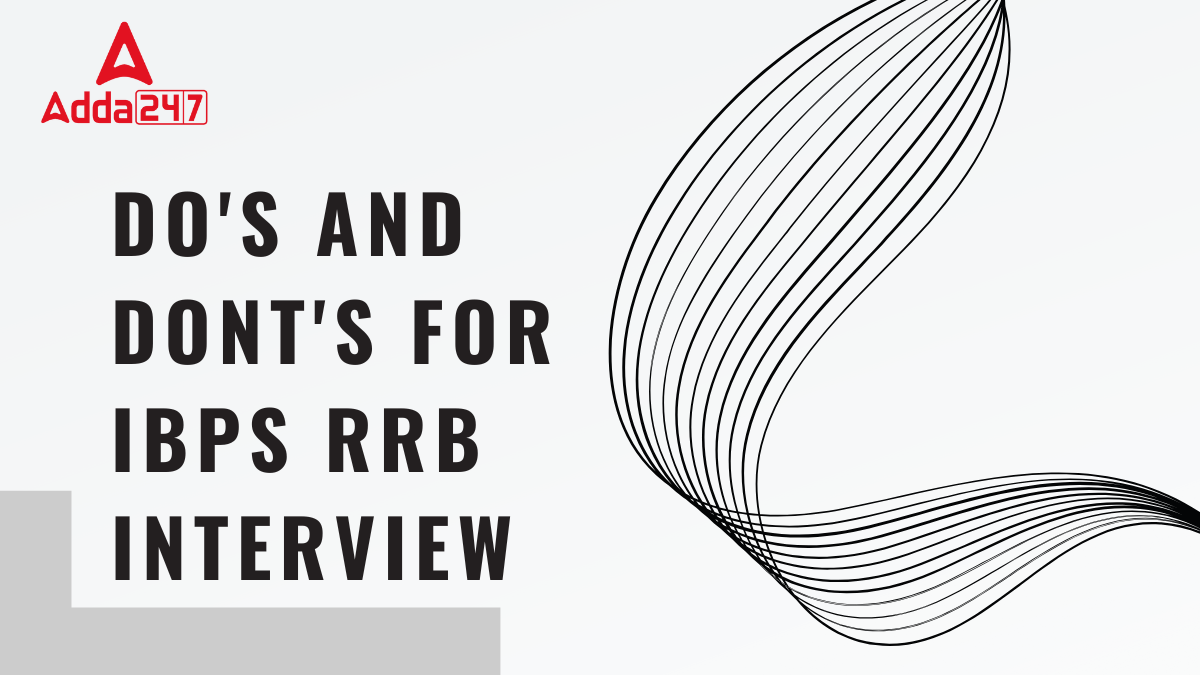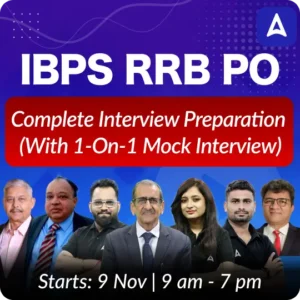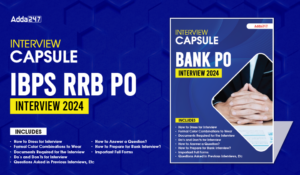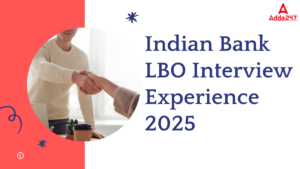Table of Contents
The IBPS RRB (Institute of Banking Personnel Selection – Regional Rural Banks) Interview is the final stage in the selection process for aspiring candidates aiming to join the rural banking sector in India. This stage is crucial as it allows interviewers to evaluate your suitability for the role and your motivation to work in rural banking. To succeed in this final round, it’s essential to prepare well and understand the specific expectations of the interview panel.
Do’s and Don’ts for IBPS RRB Interview
Performing well in the interview requires not just preparation but also a clear understanding of what to emphasize—and what to avoid. By following essential do’s and don’ts, you can approach the interview with confidence, maximize your strengths, and make a positive impression on the panel. To help the candidates with better understanding some of the Do’s and Don’ts are listed below:
Do’s for IBPS RRB Interview
The interview panel will assess candidates ability to adapt to the unique challenges of regional rural banking, along with evaluating your communication skills, confidence, and commitment. By following essential do’s candidate can present himself in the best light and leave a strong, lasting impression.
- Research the Role and Bank: Familiarize yourself with the responsibilities of the role, the structure and objectives of Regional Rural Banks, and the specific RRB you’re interviewing for. Knowing about the bank’s services and recent developments shows genuine interest and readiness.
- Brush Up on Banking Knowledge Be prepared to discuss basic banking concepts, current banking issues, and recent developments in the financial sector. This includes topics like financial inclusion, priority sector lending, and RBI regulations impacting RRBs.
- Highlight Rural Banking Interest: Since RRBs primarily serve rural areas, be prepared to express your motivation for working in a rural setting, as well as any relevant experiences or skills that suit rural banking.
- Prepare for Common Interview Questions: Expect questions on your background, strengths and weaknesses, reasons for choosing RRB over other banking jobs, and situational questions. Practice concise, clear responses.
- Dress Professionally: Wear formal attire, as this sets a respectful tone and demonstrates that you take the interview seriously. For men, a well-ironed suit or shirt and tie are ideal; for women, a formal suit or saree is recommended.
- Demonstrate Confidence and Positivity: Keep a calm demeanor, maintain eye contact, and listen carefully before answering. A polite, positive attitude can make a great impression.
- Bring Necessary Documents: Ensure you have all required documents organized and accessible. This includes identity proofs, education certificates, interview call letters, and experience letters if applicable.
- Stay Updated on Current Affairs: Interviewers may ask about recent events, especially those related to the banking or rural development sectors. Knowledge of relevant current affairs reflects awareness and preparedness.
Don’ts for IBPS RRB Interview
- Don’t Criticize Previous Employers or Jobs: If you have prior work experience, avoid speaking negatively about past employers. Instead, focus on what you learned from your experiences.
- Don’t Show Disinterest in Rural Posting: RRB positions often involve rural placements. Expressing disinterest in rural areas may reflect poorly on your commitment to the role.
- Don’t Provide Long-Winded Answers: Keep your responses clear and to the point. Lengthy or unclear answers can give the impression that you lack focus or preparation.
- Avoid Overuse of Banking Jargon: While knowledge is important, avoid using complex banking jargon unnecessarily. Communicate in a way that’s easy to follow, as this shows clarity and simplicity.
- Don’t Lie or Exaggerate: Interviewers can typically identify when a candidate is exaggerating or providing insincere responses. Be truthful, especially when discussing skills or knowledge areas.
- Don’t Interrupt the Interviewers: Always listen to the full question before answering. Interrupting can come across as disrespectful or impatient.
- Avoid Overconfidence or Arrogance: Confidence is good, but overconfidence can be off-putting. Stay humble and open-minded throughout the conversation.
- Don’t Fidget or Display Nervous Habits: Nervous habits like tapping fingers or avoiding eye contact can detract from your presentation. Take a deep breath, focus, and keep your posture steady to convey confidence.
- Avoid Negative Body Language: Slouching, crossing arms, or looking down while answering questions can indicate disinterest or nervousness. Aim for an open posture and engaged expression.
- Don’t Focus Solely on Salary and Benefits: Emphasizing compensation too early may imply that you’re more interested in benefits than the role itself. If asked, keep your response measured and professional.





 GIC Assistant Manager Interview Tips 202...
GIC Assistant Manager Interview Tips 202...
 Interview Preparation Guide for Central ...
Interview Preparation Guide for Central ...
 Indian Bank LBO Interview Experience 202...
Indian Bank LBO Interview Experience 202...





